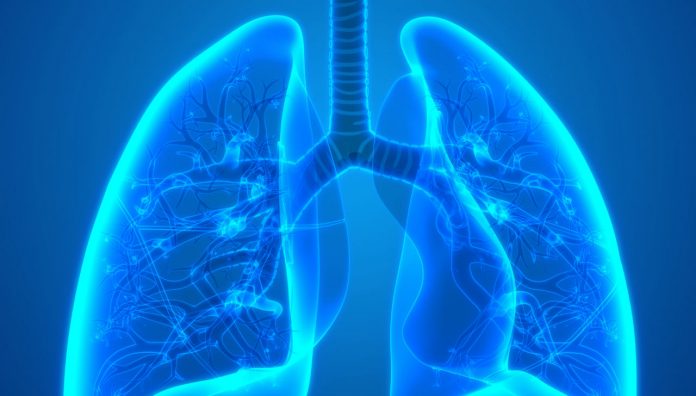A medication that promises to alleviate symptoms of severe asthma is now listed on the Pharmaceutical Benefits Scheme (PBS) under Section 100, giving patients access to the potentially life-saving treatment.
There are 2.5 million Australians (10% of the population) estimated to be living with asthma, and while many patients are able to manage their condition, severe asthma continues to challenge some of them. It is estimated that up to 10% of patients with asthma may have severe asthma.1,2
Benralizumab (Fasenra) was developed to treat eosinophilic-driven asthma, a factor in some severe asthma cases. This condition occurs when there is an excess of eosinophils, a type of white blood cell, in the blood and airways which increase the severity of asthma symptoms as well as the number of flare-ups.3
According to the data from a small sample to validate the Asthma Control Test (Asthma Score), conducted by The National Asthma Council Australia, 89% of sufferers report daily wheezing, 56% report daily cough, and 39% report experiencing phlegm and shortness of breath every day.4
Patients with severe asthma who are unable to control their symptoms with inhalers alone, may rely on oral corticosteroids to assist in symptom management during acute flare-up.
Chronic or long-term oral corticosteroid use increases risk of systemic adverse effects which includes weight gain, diabetes, coronary heart disease, depression, osteoporosis and fractures.5
Benralizumab promises to alleviate symptoms by working ‘with the body’s immune system to reduce the number of eosinophils in the blood and lungs,’ the medicine’s parent company, AstraZeneca, said in a statement.
Two Phase III asthma studies (SIROCCO and CALIMA) and one oral corticosteroid (OCS)-sparing phase III study (ZONDA) found benralizumab as an add-on therapy significantly benefited patients over the age of 12 years with uncontrolled severe asthma.6-8 Benefits observed were improved lung function, reduced asthma symptom score, improved quality of life and reduced number of asthma exacerbations.
‘Fasenra demonstrated significant reductions in annual asthma exacerbation rates of 51% and 28% versus placebo, when 8-weekly dosing, following the first 3 doses administered 4-weekly given as add-on maintenance treatment in patients with blood eosinophil count ≥300 cells,’ AstraZeneca’s statement said.
Even so, researchers note that the medicine is not free from adverse effects, which can include headaches, sore throats, fever/high temperature and injection site reactions – although these are considerably less severe than the long-term impacts of cortisol.9
Benralizumab’s inclusion in the PBS promises to greatly increase the number of people able to access the medicine.
‘Around 670 patients a year will now be able to access this medicine, which would cost more than $21,000 per year of treatment without the PBS subsidy. When this medicine is subsidised under the PBS, patients will pay $39.50 per script or just $6.40 a script for concessional patients,’ Health Minister Greg Hunt said in a statement.
The move has been praised by the National Asthma Council Australia.
‘The day-to-day burden of living with severe asthma can be considerable, including side-effects from frequent oral corticosteroid use, and new treatments provide additional options those affected,’ Siobhan Brophy, the Council’s Chief Executive Officer, said.
References:
- Chung KF, Wenzel SE, Brozek JL, et al. International ERS/ATS guidelines on definition, evaluation and treatment of severe asthma. Eur Respir J 2014; 43: 343–73
- Hekking PP, et al. The prevalence of severe refractory asthma. J Allergy Clin Immunol 2015;135(4):896–902.
- Australian Institute of Health and Welfare. Asthma web report. Available from: https://www.aihw.gov.au/reports/asthma-other-chronic-respiratory-conditions/asthma/data Date accessed: August 2018.
- Nelsen LM, Kimel M, Murray LT, et al. Qualitative evaluation of the St George’s Respiratory Questionnaire in patients with severe asthma. Respir Med 2017. Epub 2017 February 2018. At: https://www.ncbi.nlm.nih.gov/pubmed/28427547
- Lefebrve P, et al. Acute and chronic systemic corticosteroid–related complications in patients with severe asthma. J Allergy Clin Immunol. 2015;136: 1488–95.
- FitzGerald JM, et al. Benralizumab, an anti-interleukin-5 receptor α monoclonal antibody, as add-on treatment for patients with severe, uncontrolled, eosinophilic asthma (CALIMA): a randomised, doubleblind, placebo-controlled phase 3 trial. Lancet 2016;388(10056):2128–41.
- Bleecker ER, et al. Efficacy and safety of benralizumab for patients with severe asthma uncontrolled with highdosage inhaled corticosteroids and long-acting β2-agonists (SIROCCO): a randomised, multicentre, placebocontrolled phase 3 trial. Lancet 2016;388(10056):2115–27.
- Nair P, et al. Oral glucocorticoid-sparing effect of benralizumab in severe asthma. N Engl J Med 2017;376(25):2448– 58.
- Fasenra® (benralizumab) Product Information. August 2018.



 John Jones MPS, pharmacist immuniser and owner of My Community Pharmacy Shortland in Newcastle, NSW[/caption]
John Jones MPS, pharmacist immuniser and owner of My Community Pharmacy Shortland in Newcastle, NSW[/caption]


 Debbie Rigby FPS explaining how to correctly use different inhaler devices[/caption]
Debbie Rigby FPS explaining how to correctly use different inhaler devices[/caption]




 Professor Sepehr Shakib[/caption]
Professor Sepehr Shakib[/caption]

 Lee McLennan MPS[/caption]
Lee McLennan MPS[/caption]
 Dr Natalie Soulsby FPS, Adv Prac Pharm[/caption]
Dr Natalie Soulsby FPS, Adv Prac Pharm[/caption]
 Joanne Gross MPS[/caption]
Joanne Gross MPS[/caption]








